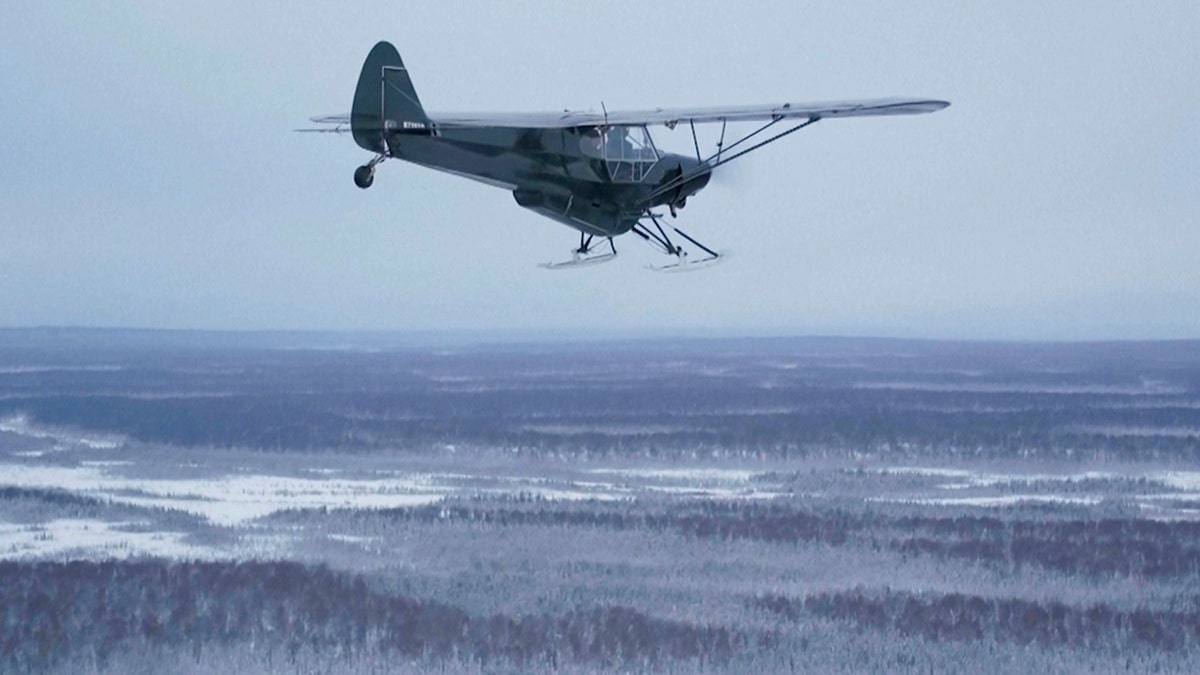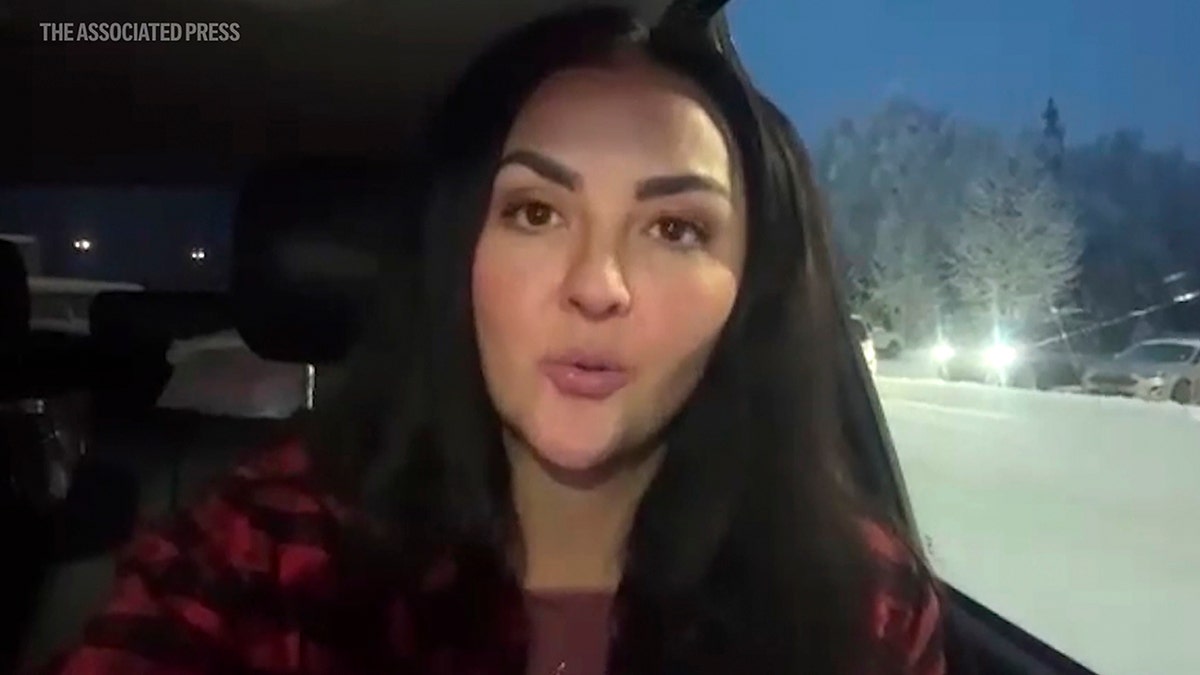In some of Alaska’s remotest areas this Thanksgiving, there’s a different kind of bird in the sky – a frozen turkey dropped for residents unable to pick up their own for their holiday table.
Alaska native Esther Keim is now in her third straight year of the Alaska Turkey Bomb, a service in which she drops frozen turkeys from a small plane to remote areas of the south-central part of the state.
Keim told the Alaska Gear Company that she remembers living on an Alaskan homestead as a child.
“I grew up in Skwentna, Alaska, which is about 50 miles northwest of Anchorage,” Keim said in a video about her efforts. “In the fall, in the freeze-up, families would be stuck out there because you can’t travel, everything would be freezing up. It’s not safe.”
MAN WHO DROVE THOUSANDS OF MILES TO RESCUE TURKEYS FROM THANKSGIVING DINNER INVITES AMERICANS TO ADOPT ONE
She continued, “We had a friend that would fly and drop a turkey for Thanksgiving. I just remember it being so exciting and so fun. He would drop a newspaper and inside the newspaper was a pack of gum.”
She said to a kid “that couldn’t just go to the store, a pack of gum just meant so much. You know, you can’t access the store so easily, and you have to plan in advance. “
Keim said freeze-up at the beginning of winter and breakup at the end are “three weeks minimum” when it’s hard to travel.
Having since moved to Anchorage, she said she was inspired to start the Alaska Turkey Bomb by her childhood memories and after hearing of a neighboring family near where she lived on the homestead who were going to go without on Thanksgiving in 2022.
“He was saying how one squirrel doesn’t split three ways very far for dinner, and I had a thought in my head when he said that that I’m going to airdrop him a turkey,” Keim told the Alaska Gear Company.
She said it quickly turned into, “you know, ‘I’m going to do this for all the families that are stuck out there because I remember what that meant to my family and to all the rest of the families. It was pretty special.”
Keim noted that in “the bush” there are no roads and the only way to get to the home is by plane, snowmobile or boat at Thanksgiving time. “Everyone is stuck.”
ARIZONA GRANDMA AND STRANGER SHE MISTAKENLY TEXTED IN 2016 WILL CELEBRATE 9TH THANKSGIVING TOGETHER
She said airdropping the birds is efficient, “because we can get to so many families so quickly.”
Keim added that she put “something special” in the turkey bomb for the three families she dropped to who have kids because “as a kid growing up out there I understand what candy meant, and the lack of it.”
Keim and her pilot Heidi Hastings flew so low when dropping the packages to the kids that she told the Associated Press she was able to see some of the children’s reactions, “and I could see their excitement.”
This year, Keim’s 30-some turkey deliveries included 80-year-old Dave Luce, who, along with his wife, lives northwest of Anchorage on the Yentna River.
The Luces have known Keim since she was a child.

They venture into the nearest town about once a month in the winter via a 90-minute snowmobile ride.
Luce said: “I’m 80 years old now, so we make fewer and fewer trips. The adventure has sort of gone out of it.”
“She’s been a real sweetheart, and she’s been a real good friend,” he added of Keim, who delivered them a 12-pound bird this year. “It makes a great Thanksgiving.”
Using her airplane that she recently rebuilt with her dad, Keim and her pilot Heidi Hastings fly over the homes until they see a person outside. Then they come around “low and slow” and drop the bird.
Keim relies heavily on donations for the turkeys and purchases about 20 at a time, which she leaves in her truck until it’s time to fly.
“Luckily it’s cold in Alaska, so I don’t have to worry about freezers,” she joked to the Associated Press.

“My vision with this is to make it into a nonprofit organization where I can get funding and more support that I can reach more parts of Alaska because there are so many families that live rural and that live off-grid,” Keim added.
The Associated Press contributed to this report.
Read the full article here









